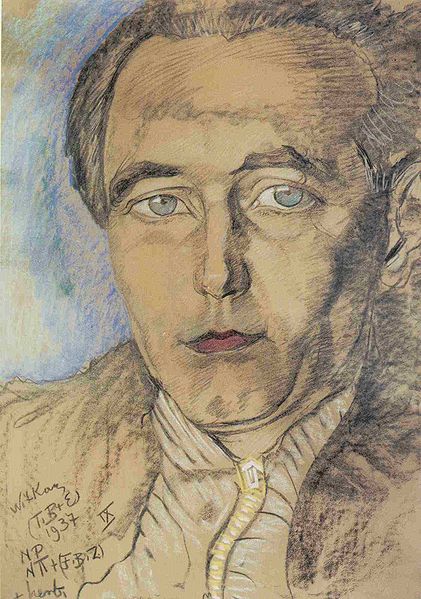<Back to Index>
- Philosopher Roman Witold Ingarden, 1893
- Poet Johan Ludvig Runeberg, 1804
- Prime Minister of the United Kingdom Sir Robert Peel, 1788
PAGE SPONSOR

Roman Witold Ingarden (February 5, 1893 – June 14, 1970) was a Polish philosopher who worked in phenomenology, ontology and aesthetics.
Before World War II, Ingarden published his works mainly in the German language. During the war, he switched to Polish, and as a result his major works in ontology went largely unnoticed by the wider world philosophical community. Ingarden was born in Kraków, Austria-Hungary, on February 5, 1893. He first studied mathematics and philosophy in Lwów under Kazimierz Twardowski, then moved to Göttingen to study philosophy under Edmund Husserl. He was considered by Husserl to be one of his best students and accompanied Husserl to Freiburg, where in 1918 Ingarden submitted his doctoral dissertation with Husserl as director. Ingarden
then returned to Poland, where he spent his academic career after
obtaining his doctorate. For a long period he had to support himself by
secondary school teaching. In 1925 he submitted his Habilitationschrift, Essentiale Fragen, to Kazimierz Twardowski at Lwów University (now Lviv in Ukraine).
This thesis was noticed by the English speaking philosophical
community. In 1933 the University promoted him to professor. He became
well known for his work on The Literary Work of Art. World
War II closed Lwów University and halted his academic career in
1941 - 1944. Ingarden secretly taught orphaned children mathematics and
philosophy. After his house was bombed, he continued work on his book, The Controversy over the Existence of the World. Ingarden became a professor at Nicolaus Copernicus University in Toruń in 1945 shortly after the war, but was banned in 1946 because of the Communist government. He then moved to the Jagiellonian University in Kraków, where he was offered a position. In 1949, however, he was banned from teaching due to his alleged idealism,
supposedly being an "enemy of materialism". In 1957 he was reappointed
at the Jagiellonian University after the ban was lifted, and so he went
on to teach, write and publish. Ingarden died on June 14, 1970 as a
result of a cerebral hemorrhage. Ingarden was a realist phenomenologist,
and thus did not accept Husserl's transcendental idealism. His training
was phenomenological, nonetheless his work as a whole was directed
rather towards ontology. That is why Ingarden
is one of the most renowned phenomenological ontologists, as he strove
to describe the ontological structure and state of being of various
objects based on the essential features of any experience that could
provide such knowledge. The
best known works of Ingarden, and the only ones known to most
English speaking readers, concern aesthetics and literature. The
exclusive focus on Ingarden's work in aesthetics is to some extent
unfortunate and misleading about his overall philosophical standpoint.